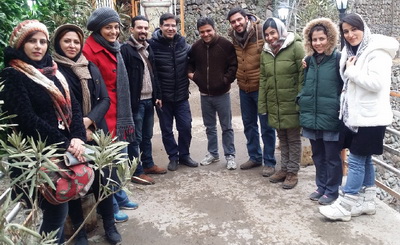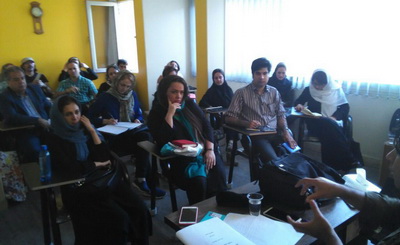I. Woods
“We’re looking for your sister.” Edwina strained up the hill under the forest cape, cold mud wedged between her toes. Three of her children in ragged shirts straggled behind. Hills steeped into heights away from Rwanda. They waded through mist thick as leaves overhead, thick as rain.
“What if she looks for us at home?” Edwina’s youngest carried charcoaled wood, bundled in a torn cloth, the knot at the top hung like a candle wick. He labored under the weight, the two other boys vied under bags of rice.
Upon her head, Edwina carried a cloth pack of pots. “We have to find your sister.” At the top of the mountain lay the Burundian border. Cold danced with descending darkness around their black eyes. They stepped through muck and sticks.
“How’ll she find us?” said one boy.
“We’re running,” said the other.
II. Refuge
“Go away!” Edwina accosted Filomena. “You don’t belong!” Aid workers had made the student share shelter with her weeks ago, and Edwina was still upset about it. Edwina stood by the fire, cooking beans and rice, hand-outs from places she had never heard of. Her children waited with empty metallic bowls.
“It’s my tent as much as yours. The muzungu said so.” Filomena pushed Edwina aside, disappeared inside. She squatted on her mat clutching the magazine the white man had given her. Who did that fool think she was? No one treated her like that at university. This refugee camp stuck in the hills was not for her, Edwina was right about that. She belonged back at her studies, surrounded by libraries, books, professors, her own room, running water.
Edwina flipped the flap to the tent, stormed in; her children rushed in behind. She shook the big metal ladle in her hand, “you bring strange men here in front of the children! You make me cook for you, wash your clothes. And you won’t tell me what happened to my Sylvana. No more of you!”
“I told you, I don’t know what happened. I barely escaped with my own skin.” Filomena shot up. All she wanted was to sleep, dream of her mother’s face, hug her nine sisters and brothers from whom she had no news. The last time she saw her mother was when she left for university, when mama had slipped a copy of Marie Claire into her bag. Edwina was not the only one who had lost…
“But you saw—”
“I only saw them coming, that’s all.” She threw down her magazine. “This is my place, too. You can’t chase me away!”
“You could be her sister. She wanted to be like you, scholarship, university, French like a muzungu.” Edwina pointed the ladle at Filomena. “Now look at you!” Edwina lifted the ladle over her head, her children grabbed at her pagne. “My Sylvana is better than you! Get out!’
Filomena snickered. She was much taller than Edwina. When Edwina struck, Filomena caught her arm mid-air. Hanging a right, she sent Edwina reeling. The ladle fell. Her children cried, “Mama, Mama!”
III. Rations
There was shouting at the opening of the canvas hall where sacks of rice were being readied for the next day’s food distribution. Filomena was listening with other workers to the bossman’s instructions when the commotion erupted. There stood Edwina, the bruise from the slap prominent on her face, the three boys at her side. She was waving her ration card, screaming at all near to write five, for five people, not just four. “She’ll be hungry, hungry!” Her three boys gawked at a pale man who didn’t understand. Sylvana had to be found.
Filomena breathed in. Was Edwina there to get her fired? She shooed the others away. “Edwina, you’re not allowed here. What is it?”
“Why tell you?” Her black eyes lowered. “You haven’t helped me one amafranga, you use my daughter’s mat, her place.”
Filomena had to think. Yes, why should Edwina tell her? She had fought with Edwina, she had laughed at her. Filomena thought of how her own mother took over her father’s shop when he died, how she braved death threats from fired employees, how she kept her children in Catholic school, how she sent Filomena, her baby, to university so she would never be denied. Never be denied. Where was her mother now?
“I’ll help,” she said. “I promise.”
IV. Sanctuary
Holding Edwina’s hand, Filomena stepped into Melanie’s wooden matchbox-sized office. Papers were strewn over Melanie’s cobbled desk, maps of the camp covered the plank walls, a large bulletin board loomed next to the door. Sunlight, diminishing in intensity, seeped through gaps in the planks, raindrops pattered on the tin roof.
Melanie motioned to the board. “Separated people, mostly children.”
“It’s been weeks,” Edwina trembled as Filomena translated. “‘A head for us all,’ I told her. ‘You do good at school, girl, you read, you write.’ Tall? Tall like all the other girls. Wide face like the promise of God. She said crazy men were watching, crazy men watching behind trees, crazy men trees. I made her go. ‘No,’ I had said, ‘no, girl, you go learn for us, you be smart.’ Lord, let her be in the forest! She loves the forest, loves the smell of cut wood. I beg you, please find her!” Edwina wiped her tears on her pagne.
“You have a picture?” Melanie ventured.
“She was at school when—” Edwina’s voice trailed.
“They took her,” Filomena squeezed Edwina’s hand.
“Her spirit may not hear!” Releasing Filomena, Edwina fingered the photos on the board. “Where’s my Sylvana?”
“And my family—” Filomena’s eyes welled.
A rainstorm erupted, the tin roof resounded every pelting drop like a foghorn. “The rain,” said Melanie, “wait.”
Edwina turned, stroked Filomena’s hair, wiped her tears, laced her arm around hers. Together they gazed over the countless pictures: girls, boys, women, men, all waiting to be claimed.
Together Edwina, Filomena, Melanie waited for the downpour to ease, eyes lingering over faces searching sanctuary.
Julianne DiNenna is an Italian-American writer from Washington, DC. She is a constant sea-crosser, voyaging on an open page when not traveling for work, trailing ink like footprints in soft soil. Her poems and short stories have been published in Italy, a Love Story, Offshoots, Hello Switzerland, Susan B and Me, Grasslands Review, ‘Airplane Reading’, among others.




